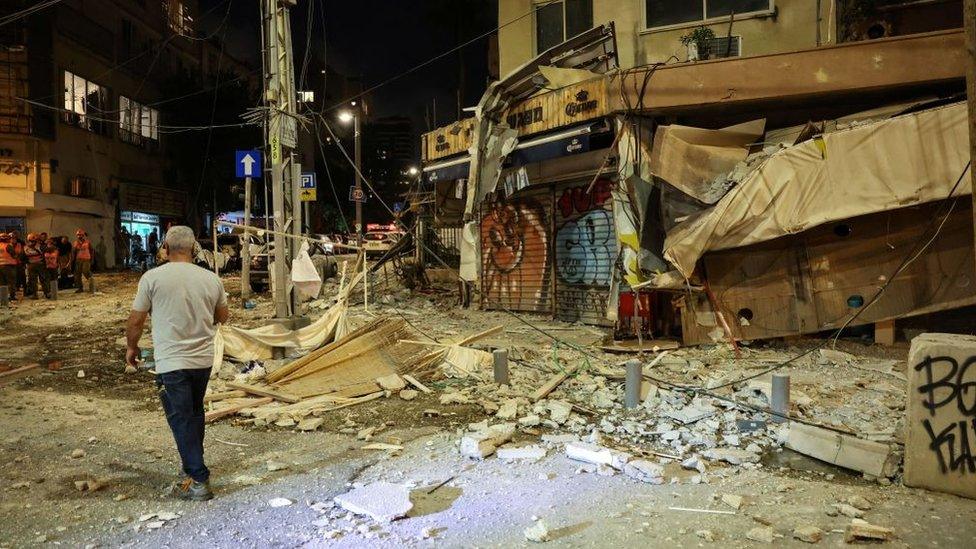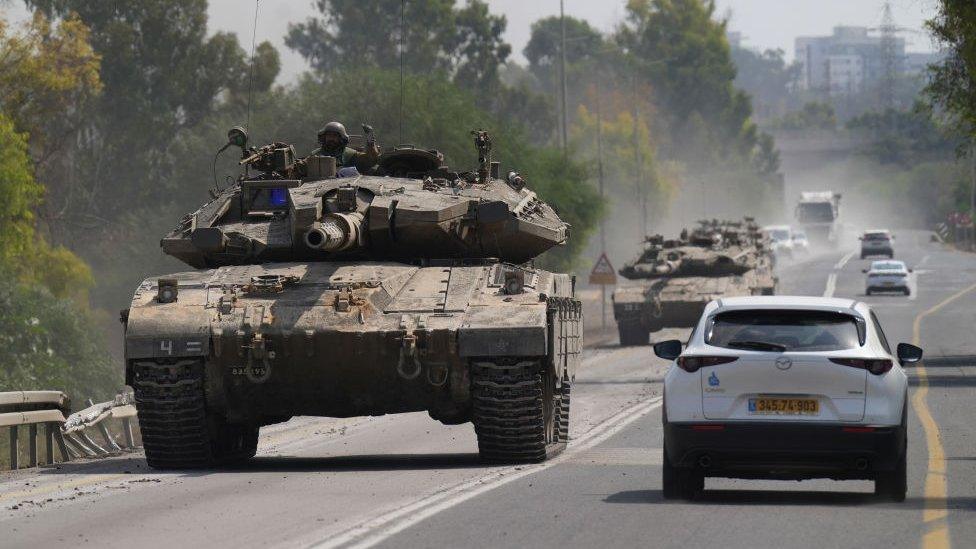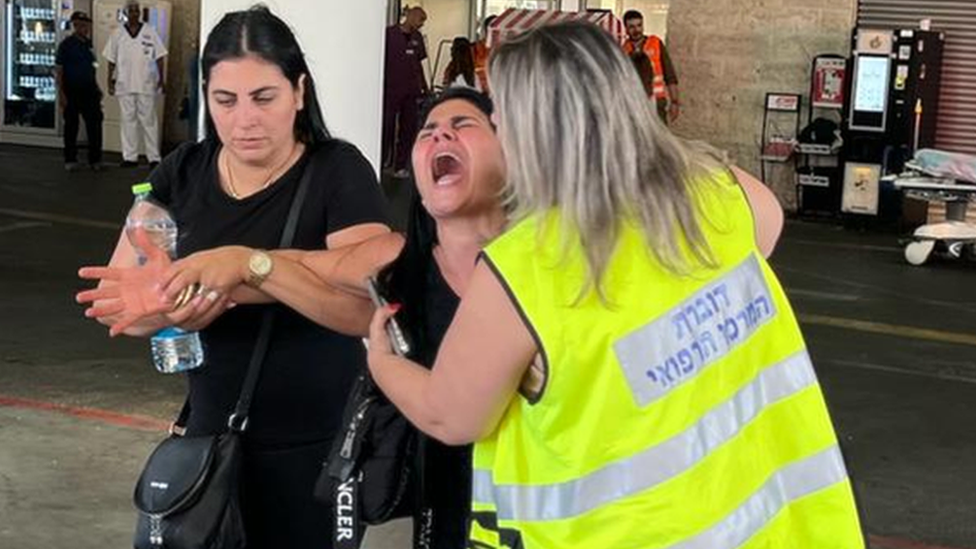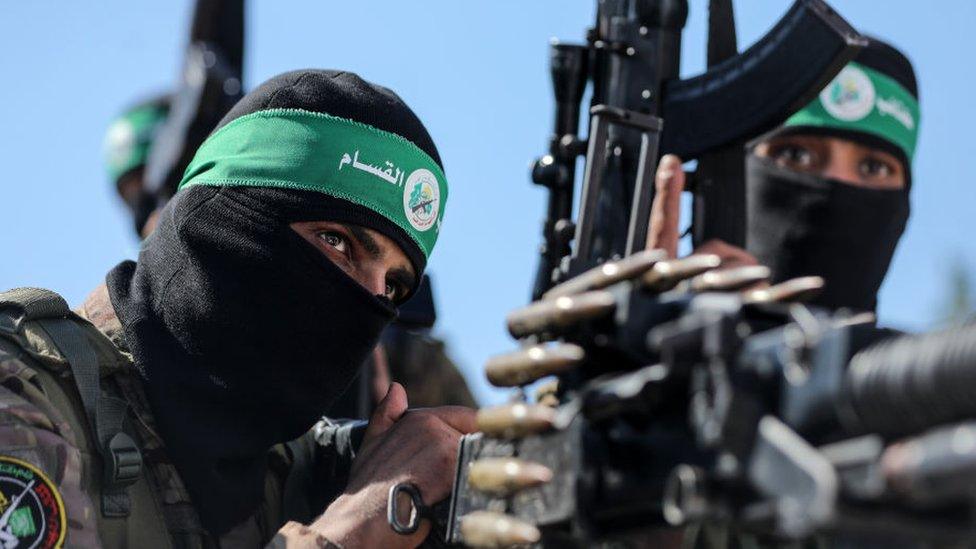Why did it take Israel so long to deal with Hamas's attack from Gaza?
- Published

Hamas militants were able to overcome Israel's defences in a shocking attack
Where were the Israel Defense Forces, in those long hours as Hamas militants roamed at will around communities near Gaza, some are asking.
"The army completely failed as a quick-reaction force," one Israeli said, pointing to how some of the communities that came under attack had to rely on their own civilian protection forces while they waited for the military to arrive.
The full answer of why this happened will take some time to emerge. But it seems as if surprise, scale and speed overwhelmed defences which were patchy and unprepared for what they faced.
Surprise was crucial in Hamas's assault.
Israeli intelligence failed to get inside the planning by Hamas for the attack. The group seems to have undertaken a long-term programme of deception to give the impression it was incapable or unwilling to launch an ambitious attack.
It also practised good operational security, probably keeping off electronic communications.
Hamas then relied on the unprecedented scale and speed of what came next.

Thousands of rockets fired from Gaza hit areas across Israel, including the city of Tel Aviv
Thousands of rockets were launched as cover. But there were also drone strikes on the monitoring equipment that Israel uses on the border fence to watch what is happening. Heavy explosives and vehicles then created as many as 80 breaches in the security fence.
Motorised hang-gliders and motorbikes were also involved, as between 800 and 1,000 armed men flooded out of Gaza to attack multiple sites.
These swarming tactics seem to have succeeded in overwhelming Israel's defences - at least for a while.
Such a range of activity would have led to chaos within Israel's command and control centres, already quiet on a Saturday morning which was also a religious holiday.
Some of the Hamas fighters targeted civilian communities while others targeted military outposts. There has been shock that these outposts were so lightly-defended that they could be overrun, with images posted of Israeli tanks in Hamas hands.
And the holes in the border remained open for long enough to allow hostages to be taken into Gaza before tanks were eventually used to close them up.

Israel is now amassing tanks and men on the border with Gaza after calling up hundreds of thousands of reservists
Defences seem to have been patchy - Israeli security and defence forces had in recent months been more focused on the West Bank rather than Gaza, potentially leaving gaps. And Hamas may have counted on the divisions in Israeli society over Prime Minister Benjamin Netanyahu's policies to further distract the security establishment.
Israel's military and intelligence capability has long been rated as the best in the Middle East and one of the best in the world. But they may also have underestimated the abilities of their opponents.
The attacks have been compared to those of 9/11 in the US, when no-one had predicted that planes could be used as weapons. That was often called a "failure of imagination".
And a similar failure of imagination may also be one of the issues for Israel, leaving it unprepared for something so ambitious from its enemy.
Those concerns will certainly be part of the long-term inquiries that will likely take place. In the short term though, the focus will be on working out what to do next rather than looking back.

More on Hamas-Israel attacks

- Published11 October 2023

- Published8 October 2023

